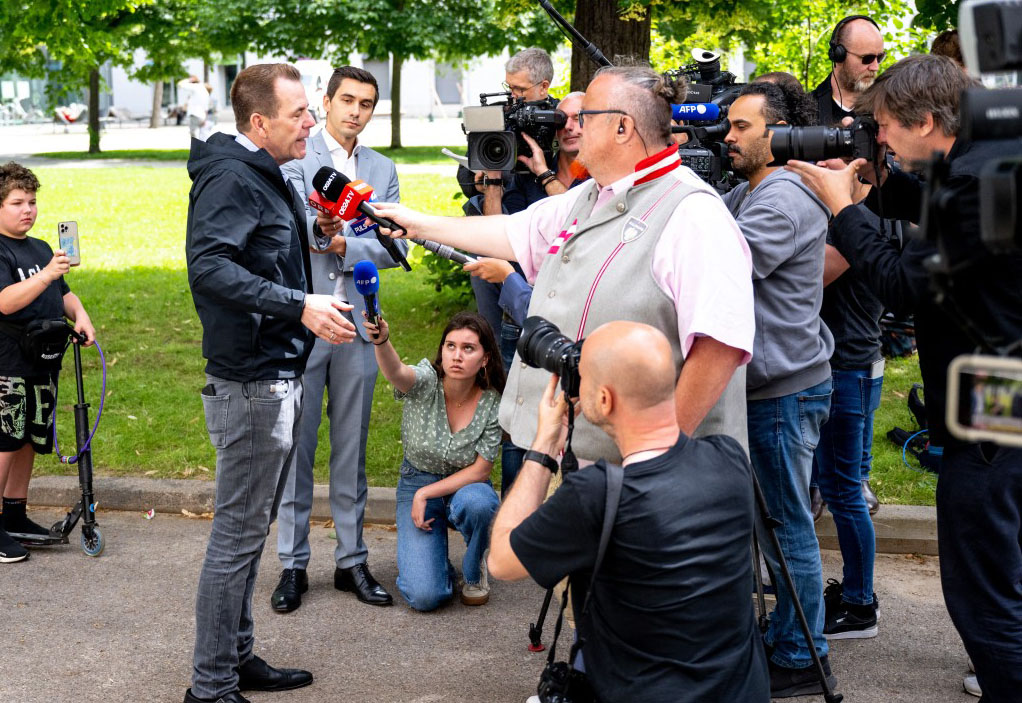
Austria’s far-right FPOe party was leading the vote count in the country’s EU elections on Sunday, exit polls indicated.
If confirmed, it would be the first time the group has topped a nationwide ballot in the Alpine country.
The Freedom Party (FPOe) gained 27 percent of the votes, ahead of the ruling conservative People’s Party (OeVP), according to the polls released by the country’s main media outlets.
The OeVP was tied in second place with the Social Democrats (SPOe) at around 23 percent, the polls showed.
The OeVP slumped from the almost 35 percent it had gained in the last EU elections.
Its junior coalition partner, the Greens, also lost ground, falling to just above 10 percent, down from 14 percent in 2019.
The FPOe’s share surged on the other hand — it was up from 17 percent in 2019, when the party suffered from a string of corruption scandals.
Its recent success under its leader Herbert Kickl, 55, is attributed above all due to his rebellious Covid anti-vaccination stance.
During the pandemic, the party seized on anger over strict measures such as nationwide lockdowns and a mandatory vaccination law that was later scrapped.
The measures sparked mass protests, with the FPOe styling itself as an anti-jab party.
On the war in Ukraine, Kickl has defended Austria’s neutrality, criticising the EU sanctions against Moscow.
During the campaign, led by Harald Vilimsky, a serving FPOe member of the EU parliament, the party put up posters showing European Commission head Ursula von der Leyen hugging Ukrainian President Volodymyr Zelensky, urging voters to “stop the EU madness”.
The FPOe is also expected to top the vote in national elections in the autumn, but it remains to be seen if it can find partners to form a majority to govern.
The anti-immigrant party — founded in the 1950s by former Nazis — has been part of a ruling coalition several times but has never governed.
In total, 6.4 million people were eligible to vote in Austria, which has 20 seats in the 720-seat EU parliament. Seven parties fielded candidates.












